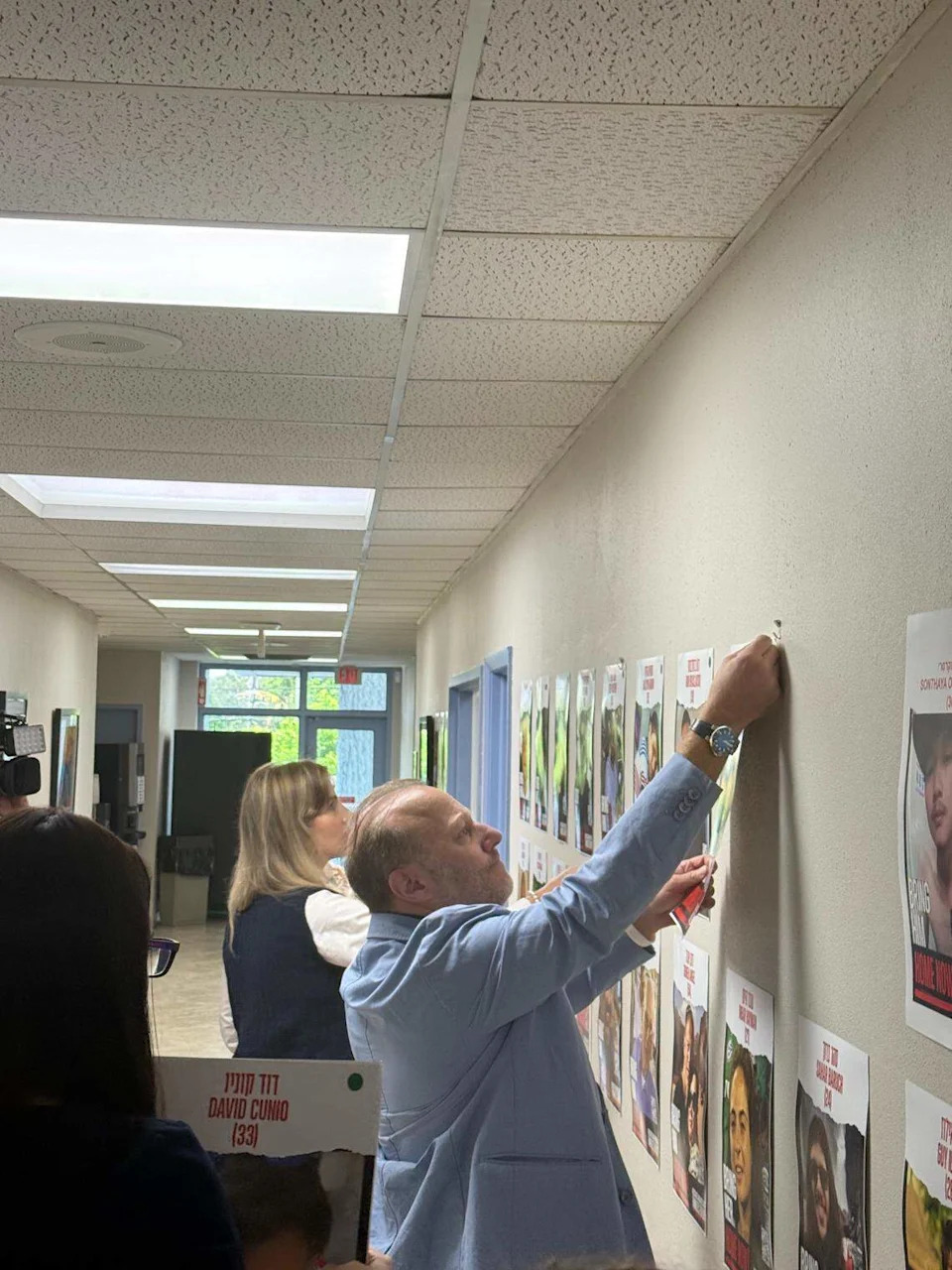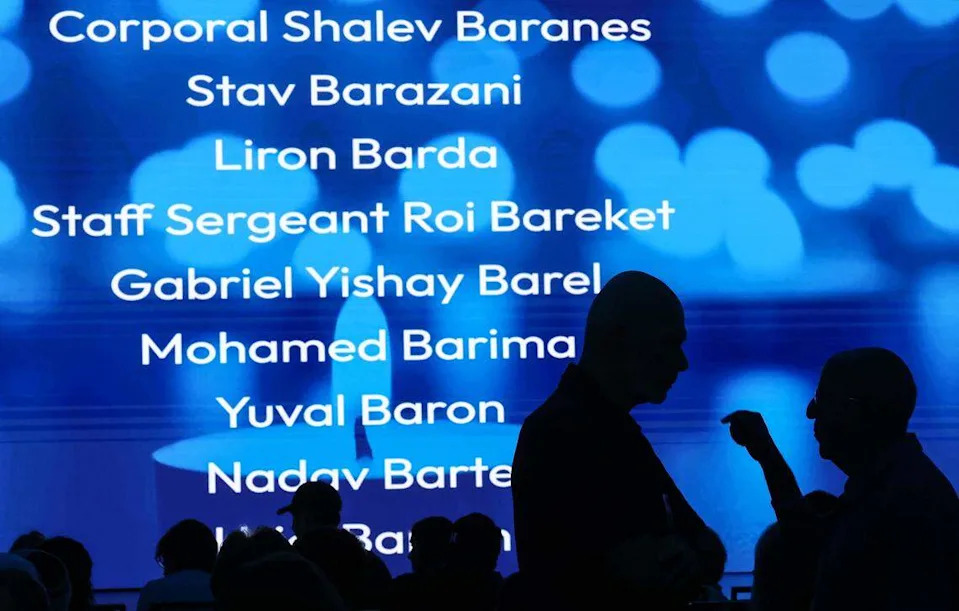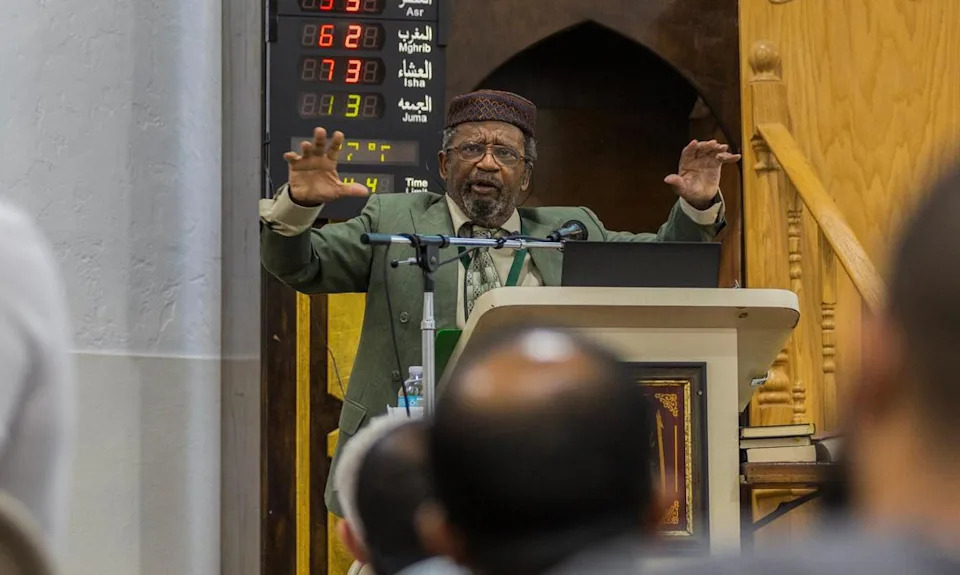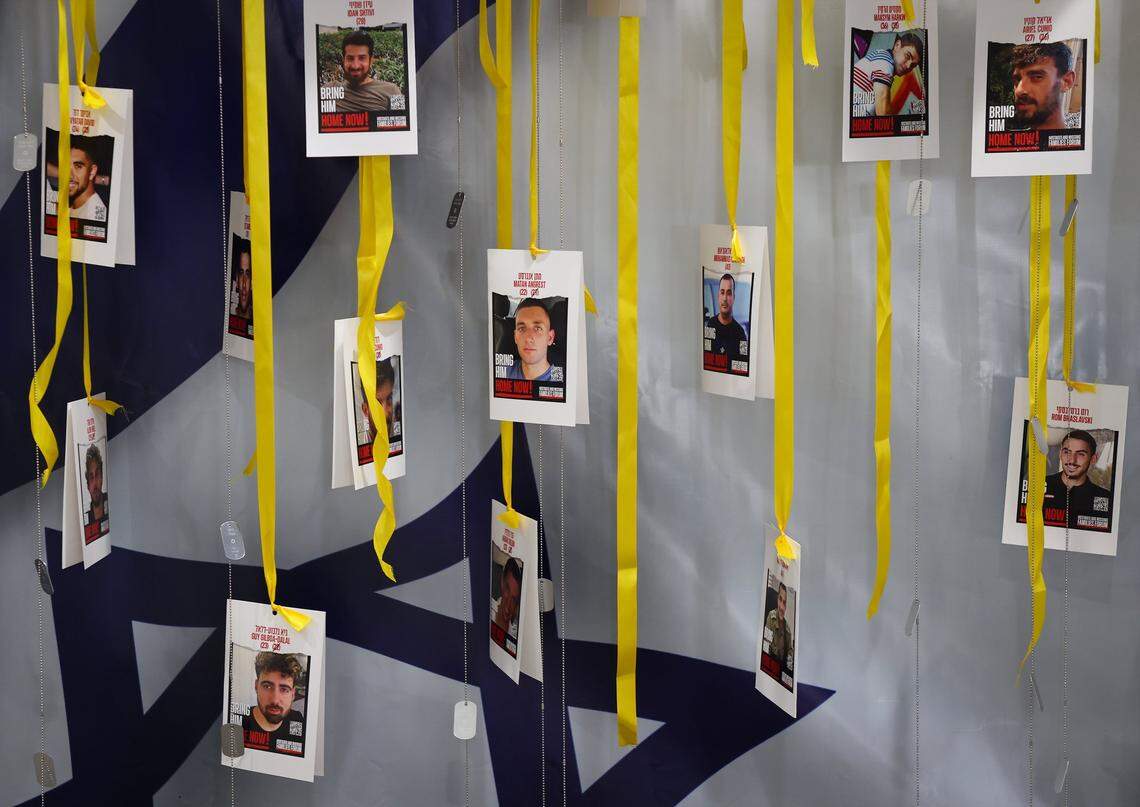In a historic ceasefire deal after two years of war, Hamas released 20 remaining hostages in Gaza, and Israel freed nearly 2,000 Palestinian prisoners on Monday.
Many in South Florida hoped that the deal, which President Donald Trump helped broker, will bring a permanent end to two years of deadly war between Israel and Hamas. But some are cautiously celebrating, as the agreement has left many unanswered questions about the future of Gaza, which has been decimated, whether the ceasefire will hold and if Israel and Hamas can reach lasting peace.
The war began when Hamas militants attacked Israel on Oct. 7, 2023, killing about 1,200 people, mostly civilians, and abducting about 250. In response, Israel invaded Gaza, with the conflict killing about 67,000 Palestinians, according to Gazan health authorities.
South Florida is home to one of the largest and most diverse Jewish communities in the country with about 69,700 Jewish households, making up 5% of Miami-Dade County and more than the national average of about 2%. Many Jews have strong ties to Israel and some families knew or lost loved ones in the Oct. 7 attacks, intensifying the emotions of the day.
South Florida also has a Palestinian-American population, and many in the growing Muslim community have ties to the Middle East.
The release of the hostages and prisoners struck powerful emotions on both sides. Here’s what South Florida faith leaders and stakeholders have to say about the ceasefire deal, release of the hostages and reflections on the future for Israel and Gaza.
A ‘day of hope’ and mixed emotions
Scott Kaufman, president and CEO of the Greater Miami Jewish Federation, removes photos of hostages who were released to Israeli families on Monday as part of a ceasefire after two years of war between Israel and Hamas.
At the Greater Miami Jewish Federation headquarters, members of the Jewish community sang songs and cried tears of joy for the families who were able to reunite with loved ones who they haven’t seen in over two years.
“Our Jewish community, and probably Jewish communities around the world, had those families top of mind pretty much every day for the last couple years. So there was a great deal of joy and tears around that moment,” said Scott Kaufman, president and CEO of the Greater Miami Jewish Federation.
“There was also a sadness for all the reunifications that will never happen. People who were murdered and aren’t coming back, or they’re coming back to be buried. That’s an incalculable loss.” Kaufman said.
Employees and friends of the Federation gathered to remove pictures of the freed living hostages from a commemorative wall. Photos of the deceased were left up, Kaufman siad.
“There was a pride as an American that our government helped broker what hopefully, and I say this with cautious optimism, leads to a more comprehensive peace in a better world,” Kaufman said.
For South Florida Rabbi Yossi Harlig, it’s a day of strong emotions.
“Thank God that they were freed and brought back to their families,” said Harlig, who is a rabbi at the Chabad Center of Kendall/Pinecrest. “Obviously it’s a miraculous day when you had 20 hostages that were ripped out of their homes or taken from festivals, innocent people who lived … under brutality of the Hamas. That’s a great miracle, and it’s a great celebration.”
But Harlig said he is also thinking of the more than two dozen families of the deceased hostages. Harlig, who was a chaplain to grieving families and first responders during the 2021 Surfside condo collapse, said he knows firsthand how vital it is for families to receive the bodies of their loved ones who have died.
“In Judaism, we believe even the body is sacred. To bring them back to the holy soil of Israel, to rest with their people — that, too, is sacred,” Harlig wrote in a post on his social media page.
While all 20 living hostages held by Hamas were immediately released as a part of the ceasefire deal, it was not immediately clear when the 24 deceased hostages would be handed over by Hamas, according to The Associated Press. Harlig said he was reminded of those dark days in Surfside when families would get the call that their loved one was found among the rubble.
“You could feel the pain, but also this deep relief, this quiet calm, as if they could finally breathe again. It didn’t take away the grief, but it allowed them to start healing,” he wrote.

Names of the victims of October 7th scroll are displayed on the screen during an event commemorating the second anniversary of the tragic attacks in Israel on October 7, 2023. South Florida celebrated the release of 20 living hostages on Monday after a ceasefire deal was reached between Israel and Hamas.
For Brian Siegal, director of the Miami and Broward region of the American Jewish Committee Miami and Broward, the day brought bittersweet emotions as he also remembered the families of the hostages who perished in captivity.
“I was overjoyed watching the reunions of the 20 surviving hostages with their families,” he said. “However, I’m also thinking about the families of the deceased hostages who await their return. Their anguish continues.”
Still, he said, there is “reason to hope” despite “unprecedented challenges” in the region.
“Today is a historical moment, one that can move Israel, the Palestinians and the entire Middle East toward a better future,” Siegal said.
The Federation, in a statement said Monday is “a day of hope,” and “the beginning of healing for the hostages, their families and all of Israel.”
Reflecting on the prolonged period of war, the Federation added that “through 18 major Jewish holidays and 105 Shabbat dinners, Jewish families in Israel and around the world had empty chairs at our tables, yellow ribbons on our lapels, and fractures in our hearts.
“Today we rejoice as the 20 surviving hostages come home to their loved ones and finally fill the empty chairs at our tables and begin mending our broken hearts,” the Federation wrote.
Some skeptical of lasting peace
Imam Nasir Ahmad speaks during the Jumu’Ah prayer service ahead of the Ramadan celebration at Masjid Al-Ansar in Liberty City.
Reflecting on what two years of war has meant for innocent Palestinians in the region, Miami Imam Nasir Ahmad said he also celebrates the release of the hostages and prisoners, while remaining skeptical that the deal will bring lasting peace.
“They need to be released. Most of the hostages were innocent in the first place. They should have never been taken,” Ahmad said. “It’s wonderful. It’s great news.”
Speaking about the 67,000 Palestinians who were killed, Ahmad said “it kind of makes you wonder… Is it going to be a permanent ceasefire or is it temporary? We don’t know.”
Ahmad said many of his congregants at Masjid Al-Ansar, a mosque in Liberty City, have family or friends in the Middle East who have felt the impact from the two-year war.
“I do applaud the Jewish people internationally that raised up their voices, that this is not to be done in their name,” Ahmad said. “I have great respect for those Jewish people that came out against the destruction of Gaza.”
Donna Nevel, a Miami Beach resident and member of activist organization Jewish Voice for Peace, said the ceasefire is “extremely welcome and necessary as a first step to achieving justice for the Palestinian people who have endured Israel’s brutal genocide these past two years.”
Nevel said she joins hundreds of thousands of Jews across the globe who “will not be silent until the Palestinian people are able to live in freedom and with dignity on their land, in their homes.”
South Florida pastor Norman Hemming told the Miami Herald that the deal took strength from both Israelis and Palestinians.
“In the Bible, the name Gaza is derived from the root word meaning ‘Strong City.’ It took strength on the part of the Israelis to agree to peace after the horrors of October 7th. But peace is not the absence of conflict, but the presence of God.”
Hemming, who is a prominent speaker at South Florida interfaith events, said the ceasefire allows for “an opportunity for new beginnings on both sides. May both sides tabernacle with God on this the last day of the Jewish Festival of Sukkoth.”
This story was produced with financial support from Trish and Dan Bell and from donors comprising the South Florida Jewish and Muslim Communities, including Khalid and Diana Mirza, in partnership with Journalism Funding Partners. The Miami Herald maintains full editorial control of this work.

